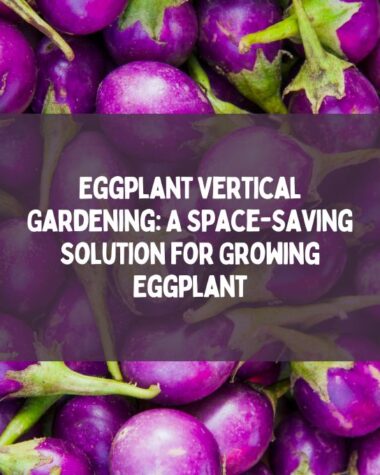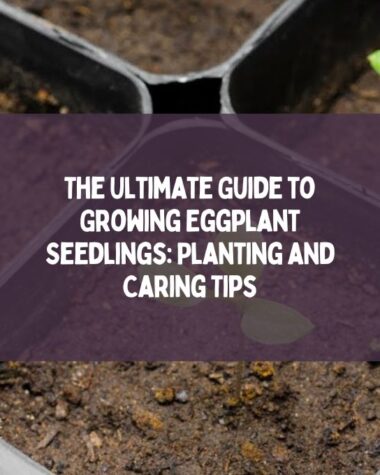The secret for growing eggplant successfully lies in providing them with full sun, rich and well-drained soil, consistent watering, and regular fertilization. Additionally, ensuring proper spacing and managing pests can contribute to a healthy eggplant harvest.
Eggplant, known for its vibrant purple skin and rich, meaty flesh, is a versatile vegetable that can add depth and flavor to various culinary creations.
Whether you’re an experienced gardener or a novice green thumb, discovering the secrets to growing healthy and productive eggplants is essential. In this article, we will delve into the techniques and tips that will unlock the secret for growing eggplant successfully.
From soil preparation to choosing the right planting method, we will explore every aspect of eggplant cultivation to help you achieve a bountiful harvest.
What is the secret for growing eggplant?

Growing eggplant requires more than just planting a seed and hoping for the best. To unlock the secret to successful eggplant cultivation, consider the following steps:
- Start with nutrient-rich soil: Eggplants thrive in soil that is well-drained, fertile, and packed with nutrients. Prepare the planting hole by adding a generous amount of compost. This not only provides a solid base of nutrients but also aids in moisture retention, keeping the roots hydrated.
- Seed or transplant: Eggplants can be grown directly from seed or with transplants. If you opt for seeds, start them indoors about eight weeks before the last frost date. Transplants are a convenient option if you prefer a head start or have a shorter growing season.
- Choose the right variety: Eggplants come in various shapes, sizes, and colors. From traditional large varieties to slender and petite options, choose a variety that suits your taste preferences and growing conditions. Popular choices include Black Beauty, Ichiban, and Rosa Bianca.
- Provide ample sunlight: Eggplants are sun-loving plants that thrive in full sunlight. Ensure they receive at least 6 to 8 hours of direct sunlight each day. Plant them in a location that receives maximum exposure to the sun’s rays.
- Optimal spacing: Give your eggplants room to grow by providing adequate spacing. Allow around two to three feet between each plant to ensure proper airflow and prevent the spread of diseases.
- Regular watering: Eggplants require consistent moisture, especially during the flowering and fruiting stages. Water deeply, ensuring the soil remains evenly moist without becoming waterlogged. Mulching around the base of the plants can help retain moisture and suppress weeds.
- Fertilize appropriately: Boost your eggplant’s growth by fertilizing regularly. Apply a balanced fertilizer, high in phosphorus and potassium, to encourage fruit development. Follow the recommended dosage instructions and avoid over-fertilizing, as it can lead to excessive foliage growth with minimal fruiting.
- Pest and disease management: Keep a vigilant eye out for common eggplant pests such as aphids, flea beetles, and spider mites. Regularly inspect your plants and take appropriate measures, such as using organic insecticides or companion planting with insect-repellent herbs like basil and marigold.
- Stake and support: As eggplants grow, they can become top-heavy and prone to breaking under their weight. Provide support by staking or caging your plants to keep them upright and prevent damage.
- Harvest at the right time: Knowing when to harvest your eggplants is crucial for optimal flavor and texture. Most eggplants are ready to be harvested when they reach a glossy, firm texture and vibrant color. Use a sharp knife or pruning shears to cut the fruit from the plant, leaving a short stem attached.
Related Reading:
- Where Do Aubergines Grow Naturally?
- Yellow Eggplant: The Uncommon and Nutritious Vegetable
- 10 Ways How To Make Tomato Plants Grow Faster
- Why Can’t We Eat Cucumber at Night?
- What is the Difference Between Zucchini and Courgette?
Conclusion
Unlocking the secret to growing eggplant successfully requires attention to detail, proper care, and a little patience. By providing nutrient-rich soil, adequate sunlight, regular watering, and timely maintenance, you can enjoy a bountiful harvest of delicious eggplants.
Experiment with different varieties, try new recipes and savor the rewards of your efforts. Now that you know the secrets, it’s time to roll up your sleeves and embark on a fruitful eggplant-growing journey.







